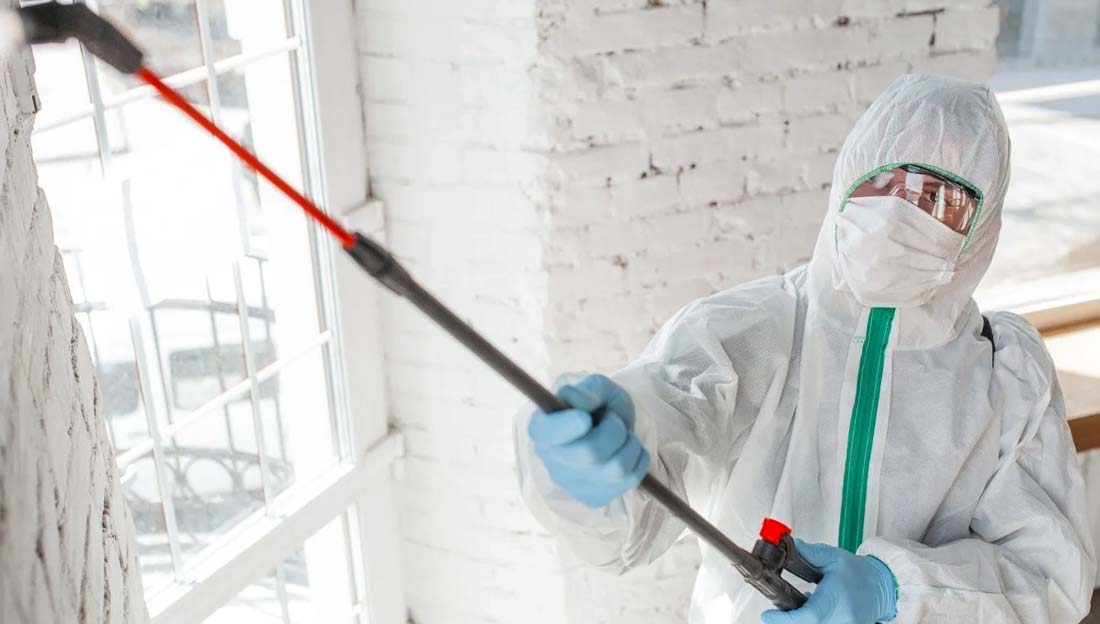Who is accountable for eliminating mold in a leased property in Oklahoma?
Oklahoma does not have any laws or regulations on mold remediation. However, it is the landlord’s responsibility to keep their units habitable. It involves ensuring that the homes are free of mold, safe, and clean.
Tenants must take care of their homes. Keep them clean and report any damage that is not their fault to the landlord early on.

What we cover
ToggleLandlord Rights And Responsibilities In Oklahoma
- Keep the residence in good repair and maintain safety and cleanliness in common areas for the lease period.
- Supply heat and hot and cold water.
- Provide garbage receptacles and ensure timely and proper removal.
- Provide sufficient notice to tenants before entry to their homes. Usually, at least 24 hours.
- Collect rent at the agreed-upon time.
- Collect security deposit
Tenant Rights And Responsibilities In Oklahoma
- To live in habitable conditions.
- Timely repair for all problems you report.
- Fix all damage that is your fault.
- Pay the required amount of rent at the agreed time.
- Use provided garbage disposal receptacles.
- Ensure quiet enjoyment of the property for other neighbors.
- Keep the unit safe by closing and locking doors and windows.
How Long Does A Landlord Have To Repair Mold in Oklahoma
Landlords in Oklahoma have up to 14 days upon receiving notice of the presence of mold to have it repaired.
When it is an emergency, landlords have up to 48 hours to fix mold or other damage in their homes.
If they fail to fix the problem, Oklahoma law allows tenants to repair and deduct up to $100 on their rent.
Inform your landlord in writing of your intention to repair and deduct from the rent.
Mold Disclosure Law In Oklahoma
Oklahoma does not have any laws requiring landlords to disclose mold in their units to new tenants.
Federal law requires property sellers to disclose the presence of lead paint for homes built before 1978.
Also, landlords must disclose any environmental hazards they are aware of in or around the house.
Resource: See other states mold laws here
Can You Break Your Rental Lease In Oklahoma Due To Mold
In Oklahoma, tenants are legally not allowed to break the rental lease if they are the cause of the mold.
When tenants notice problems that can cause mold, they should report them to the landlord immediately.
Report leaking pipes, taps, floods, spills, and mold spots to your landlord before they cause mold in your unit.
Document the problems in photos and inform your landlord in writing. Also, record all the discussions and promises that the landlord offers.
If the landlord does not fix the problems you report and mold gets too unmanageable levels, you are allowed to repair and deduct the cost from the rent.
You must have notified your landlord of your intention to repair in writing before the rent is due. You are only allowed to deduct $100 from your rent.
Constructive eviction is when you break your lease since the unit is no longer habitable because the landlord refused to fix the problems.
If the landlord sues you for the rest of the rent, you must prove in court that the house was uninhabitable, the mold was not your fault, and that you had notified your landlord, and they did not fix the house.
You can legally break your lease to start active military duty or if the landlord discriminates against you.
Can An Oklahoma Tenant Withhold Rent Due To Mold
Oklahoma does not allow tenants to withhold rent due to mold or other repairs the landlord has failed to carry out.
If the landlord does not repair the problems after a reasonable time, the tenant can repair and deduct the costs from the rent. The tenant must also provide the landlord with an itemized list of the repair cost.
Further, the amount deducted from the rent or the cost of repairs must not exceed $100.
Can An Oklahoma Tenant Seek Justice In Court Due To Mold
In Oklahoma, a tenant can sue the landlord for mold when;
- The landlord refused to fix water leaks that were reported before the mold appeared.
- If you have spent money in a hospital or on medication due to mold exposure.
- Lost income due to a condition caused by mold exposure.
- If you have spent any money to remediate the mold.
- For mold-related damage to your property not covered by your renter’s insurance.
- For pain and suffering caused by the health effects of mold.
- You are not the cause of the mold.
You can also sue your landlord in small claims court for your security deposit of up to $7,500.













